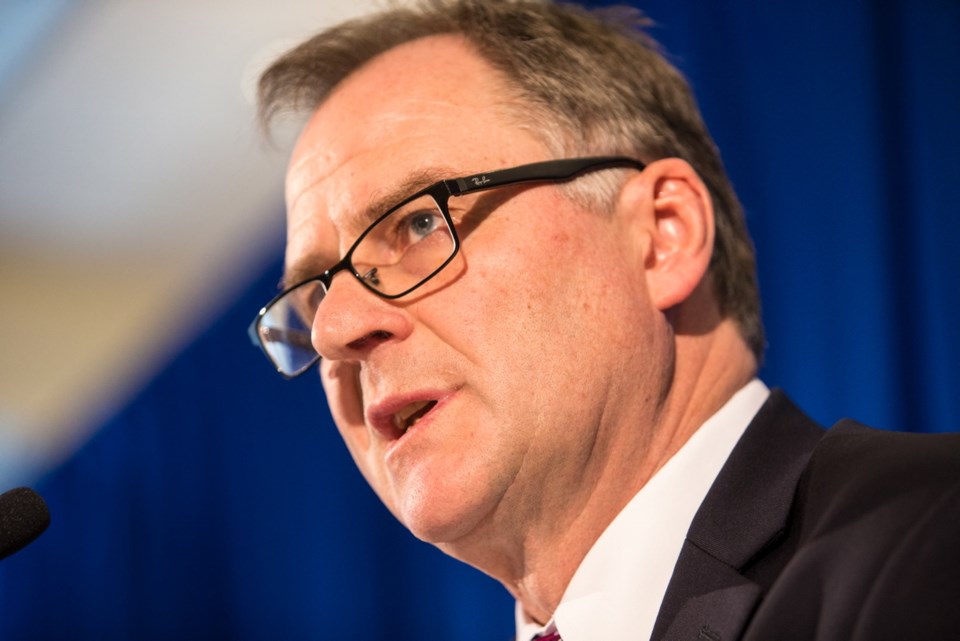There’s so much whistleblowing going on around the world that more staff will be needed after a new process to deal with it kicks into gear in B.C. on Dec. 1.
Ombudsperson Jay Chalke’s office will oversee a new system for protecting whistleblowers in a month’s time. He told the legislature’s finance committee last week that he originally estimated he’d need six staff to handle investigating and substantiating disclosures of wrongdoing, plus five to support the ongoing implementation.
That was a year ago, during early preparations after the Public Interest Disclosure Act was passed in the spring of 2018. It is written to encourage and protect people who report suspected wrongdoing in government. Since then, though, two factors have changed.
The first is that Canadian jurisdictions that already have such legislation have reported big increases in whistleblowers’ claims that need checking out. There’s been a two-thirds increase in disclosure complaints in Alberta and sharp upticks elsewhere.
Federally, the number of disclosure complaints — and the number of complaints from whistleblowers about reprisals — is at an all-time high.
The auditor general also told the committee that reports from citizens were putting pressure on her office’s workload.
The second factor that’s changed in estimating the potential workload to come is that the general awareness of whistleblowing has dramatically increased over the past year, he said.
There is concern about public sector wrongdoing in B.C., “in part arising from revelations from this building,” he told MLAs. Combined with high-profile whistleblowing in the U.S., it’s turned the phenomenon into daily page one news.
They’re everywhere these days.
There was a parade of whistleblowers through the offices of Speaker Darryl Plecas and other investigating authorities, while the legislature spending scandal developed.
They’re emerging in U.S. President Donald Trump’s administration, to the point where they have started the impeachment train rolling.
A whistleblower brought down the boss of Alberta’s energy regulating agency, with scandalous claims that turned out to be well-founded.
Earlier, a Victoria-raised data-mining expert exposed Cambridge Analytica and Facebook to worldwide notoriety.
Starting soon, the ombudsperson will advise employees about how to speak out about potential wrongdoing, investigate formal complaints and also investigate any subsequent complaints about reprisals from those who spoke out.
Chalke said there’s been a recent explosion of interest and awareness. He’s had a number of inquiries from people about how to disclose concerns even before the law takes effect.
But it’s not possible to gauge how it will increase the caseload, and consequently staffing levels, he said.
A wait-and-see approach wouldn’t work because they have to respond promptly, both legally and in order to set a tone for the new function.
He can’t shuffle people from elsewhere in the office because they’re at capacity.
So the request is for four more people on the investigation side, with the hirings delayed until next summer to ease the first-year cost.
That complement will almost certainly increase over time.
In the first year, the new regime covers 30,000 employees, those working in government and for the several independent officers. But the coverage will widen over the next five years to eventually extend to 300,000 people in the broad public sector — Crown corporations, school districts, health authorities, local governments and universities.
It’s the biggest expansion of the Ombudsperson’s duties in the 40 years the office has existed in B.C.
Just So You Know: Oddly enough, the one part of the public sector that has prompted a fair amount of whistleblowing in the last year is exempt from the new law. That’s the legislative assembly itself.
Although people who work for ministers and party caucuses will get new protection from the law, the dozens of employees reporting to the Speaker’s office will not.
The spending habits of the former clerk and sergeant-at-arms prompted several of them to come forward to investigators.
They won’t be getting any support for blowing whistles in the near future. Chalke and other independent officers called publicly for the legislature to be included in the provisions earlier this year, but there’s no sign of it happening yet.



